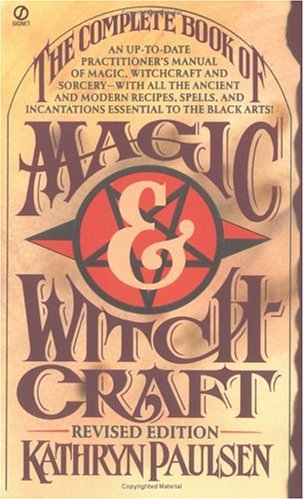That Old 70’s and 80’s Magic
 It’s the end of the year, which always spurs nostalgia and self-reflection. People are posting their top 10 books ever, top 10 of the year, most influential or inspirational people etc. I am extremely gratified to see my books and name listed a few times on these lists. In particular, I loved that Financial Sorcery was listed in someones list of best finance books.
It’s the end of the year, which always spurs nostalgia and self-reflection. People are posting their top 10 books ever, top 10 of the year, most influential or inspirational people etc. I am extremely gratified to see my books and name listed a few times on these lists. In particular, I loved that Financial Sorcery was listed in someones list of best finance books.
Bro Moloch, put an interesting spin on the 10 book thing. He focused on what the 10 most influential occult books were at the beginning of his career. So with that in mind, and knowing that they are NOT the most influential overall, I made a similar list of 10 that made the most impact on my first two years of occult practice
1. The Magus by Francis Barrett. This is actually the first occult book I ever owned and bought it off a kid in my high school.
2. Modern Witches Spellbooks 1 and 2 by Sarah Lyddon Morrison: Helped me place spellcasting into context as far as real world application and modern life.
3. Mastering Witchcraft by Paul Huson: This is my original imprint an idea of what witchcraft really is. I still love it.
4. Man myth magic encyclopedia series: Opened a world of possibility from my high school library.
5. Magical formulary 1 and 2 by Herman Slater: Basics of Conjure Style magic.
6. Magical herbalism by Scott Cunningham. What can I say, it was my first intro to working with the green.
7. Modern Magic by Dinal Michael Kraig. The first book I ever worked from beginning to end. A good first training.
8. The Necronomicon. First stab at the planetary gates. I still gig it sometimes.
9. The Necronomicon Spellbook by Simon: Helped make the Marduk Names pretty damn easy. Was also good for putting the work in perspective.
10. Complete Book of Magic and Witchcraft: Katheryn Paulson. Awesome cover. Contains a mix of conjurations from the Verum and Grand Grimoire that I was able to use with some success.
Nick Farrell had commented that it gets too embarrasing though at the beginning when you have no concept what is good and bad. I understand the comment. A few of the books above are reviled by the community at large. The Modern Witches Spellbooks, Mastering Witchcraft, and the Complete Book of Magic and Witchcraft are hated by Wiccans for presenting a Witchcraft that is decidedly different than what they are trying to present. Mastering Witchcraft has found some traction among traditional Witches these days, but the other two are written off as crappy spell books.
I could add a few more books to the list from back then: Helping Yourself with White Witchcraft by Al Manning, Mystic grimoire by Frater Malak, etc. These were often cheesy presentations with obviously made up stories about the successes of each spell. But here is the thing: they presented a magic that differed from the rest of the pack in three respects:
1. They were simple, idiotic in some cases.
2. It was something that I could do with very little effort and on a high schoolers budget.
3. The spells were aimed at changing external events and other peoples behavior, not at purely mental or spiritual changes, and not at worship or religion.
Best of all, they worked. Not all the time, and not always in the way I hoped, but they worked about 80% of the time. When I later worked my way through Modern Magic, Initiation Into Hermetics, Crowley, and all the other stuff that people take more seriously I already had firmly established the knowledge that magic worked in the real world, and that I could do it without all the complexity and training. Learning and training made me better at what I do, but without those original experiences I would have lacked the certainty that external events and minds other than my own could be touched by magic.
So, really, I am not embarrassed at all. I still love those books. What books influenced you in your early years?
